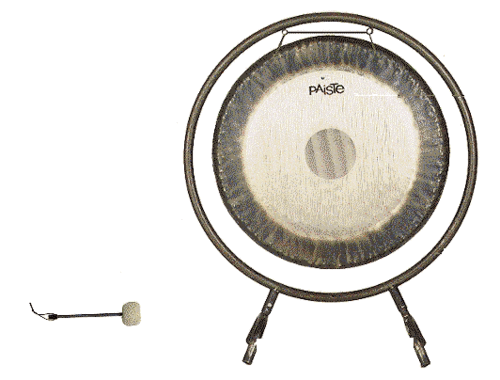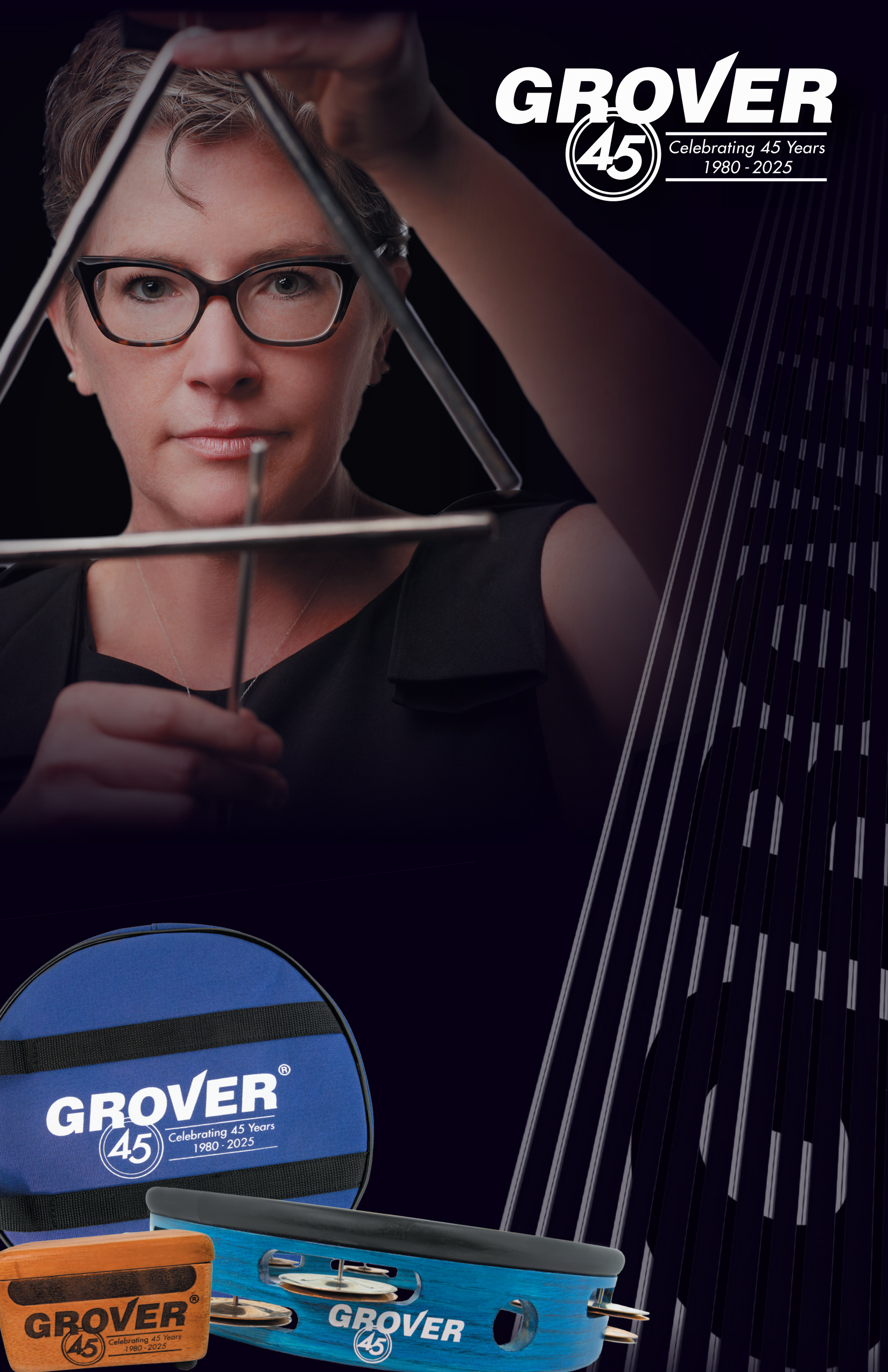
This article originally appeared on robknopper.com
what to do if you make a mistake in orchestra
my hilarious epic fail on tam-tam happened 7 years ago this month. in 2008 i got into my first major summer festival: pacific music festival in japan. i was 21, i’d taken a million auditions to get there, and it was amazing. but while i was there… something happened. something very… memorable.
to set the scene, this was one of the biggest concerts of the festival for me. we were playing turangalila by olivier messiaen. it has a HUGE percussion part, and members of the vienna philharmonic flew in to coach us. for the percussion sectional, we all sat down with copies of the score, listened through each movement and counted through all the time changes. the piece was well-rehearsed. the orchestra was made up of amazing musicians who would later get jobs in orchestras around the world, including the berlin philharmonic, boston symphony, and more. my friend kyle brightwell, now a percussionist in the boston symphony, was playing bass drum (i think), and i was playing tam-tam.
 the tam-tam is a giant gong that faces the audience. hit it too soft, and no sound comes out at all. hit it too hard, and it will overwhelm the entire orchestra. there was one movement of the piece with a huge tutti orchestra ending. we rehearsed it over and over, because it went by fast. it was a short, repeated measure that grew in crescendo until everyone cuts off together and in unison. at the performance, i was hitting my notes. it was going extremely well. then, at the end of that movement with the loud tam-tam, i walked over to the instrument, and with one eye on the conductor and one eye on the music, i started playing my huge crescendo. i counted…1…2…3… 4…5…6…7 and just when i was about to cut off, i realized that somehow i’d miscounted and actually played an additional note. and not just a little note: i had slammed an extreme multifortissimo tam-tam note that was impossible to ignore, and shocked the orchestra in the process. …
the tam-tam is a giant gong that faces the audience. hit it too soft, and no sound comes out at all. hit it too hard, and it will overwhelm the entire orchestra. there was one movement of the piece with a huge tutti orchestra ending. we rehearsed it over and over, because it went by fast. it was a short, repeated measure that grew in crescendo until everyone cuts off together and in unison. at the performance, i was hitting my notes. it was going extremely well. then, at the end of that movement with the loud tam-tam, i walked over to the instrument, and with one eye on the conductor and one eye on the music, i started playing my huge crescendo. i counted…1…2…3… 4…5…6…7 and just when i was about to cut off, i realized that somehow i’d miscounted and actually played an additional note. and not just a little note: i had slammed an extreme multifortissimo tam-tam note that was impossible to ignore, and shocked the orchestra in the process. …
 at that moment, i knew exactly what i had done, and i was absolutely petrified. i was disappointed and i would have paid hundreds of dollars (or yen) to take that note back, but it was too late. i slowly looked up, and kyle had a look that was half-shocked and half-stonefaced, as though he was trying to to keep it together. i had my eyes open as wide as they go in complete surprise and embarrassment.
at that moment, i knew exactly what i had done, and i was absolutely petrified. i was disappointed and i would have paid hundreds of dollars (or yen) to take that note back, but it was too late. i slowly looked up, and kyle had a look that was half-shocked and half-stonefaced, as though he was trying to to keep it together. i had my eyes open as wide as they go in complete surprise and embarrassment.
this was my first big orchestra mistake. and it was epically monumental. it’s been followed by other smaller ones, and it’s one blip along the story of my various other mistakes, but it’s one that stuck with me.
…
i’m sure i’m not the only one out there who’s done something that silly. we’ve all been there before, and we’ll all probably experience it again. so today i’m going to try to address this question: what should you do if you mess up in orchestra? also, what should you do if someone else messes up?
there’s no getting around it: it will happen.
in the natural course of human musicianship, everyone makes mistakes. this is why i’m addressing it. even in a professional orchestra like the met orchestra, we’re all still human. there will always be little brain slip ups. it’s not possible for anyone to have a career without it. the question is how to minimize it, be professional, and deal with it.
the goal is to make the best of it.
once you’ve done something dumb, maintain your composure. accept what you’ve done, and move forward and recover. find a way to react to something embarrassing in a way that minimizes the damage, the negative attention, and allows for the best end result in spite of the mistake.
and of course, what not to do:
here’s what the amateur musician does. they do something wrong, they make a face, they mention it to the people close to them, they continue to do more wrong things in a downward spiral, and they never recover. they’re focused on the fact that they did something wrong, so they continue to do wrong things, they distract others, and in doing so they negatively affect the music-making that’s happening. the problem with these reactions is that they draw more attention to the fact that you did something wrong. if the mistake is small, people might not notice it. if you make a face and physically react, then you’re forcing them to notice it. and whatever damage was caused by your mistake was amplified by your reaction. if you react confidently and ignore it, a colleague might think, ‘he doesn’t look like he made a mistake, so maybe he didn’t.’ so your goal is to get people to think that either you didn’t make a mistake or at least you reacted professionally.
what should i do if i make a mistake?
rule number one of mistake club: don’t react to mistakes.
if you make a mistake, keep your poker face on. continue to look at your music, the conductor, and keep playing as though nothing happened. don’t show that you noticed, don’t show that you’re sorry, and don’t even show that you know you have to fix it for next time. don’t react. it’s better this way for a bunch of reasons:
• reason #1: move on from your mistake as quickly as possible. a mistake only lasts for the length of time of the actual mistake. if you react to your mistake, that means you’re dwelling on it for longer than you need to, which could lead to more mistakes. if you move on immediately, you have a higher chance of getting back on the train and not playing any more mistakes. if you dwell on it, you are throwing yourself into uncomfortable territory and thinking negative thoughts that could lead to more and more negative effects.
• reason #2: don’t bother other people in the orchestra. everyone’s in their own world, trying to do their best and play their own part. whether they hear you or not, it’s never going help them play better to make eye contact and share an expression of regret, acknowledgement, remorse, or anything like that. in rare cases with a close friend you can share a humorous moment and laugh at yourself. but again, it’s not going to improve the music-making and it can be considered unprofessional. in fact, if you have too much fun at the expense of yourself then people might think you’re doing it on purpose, which is something you absolutely don’t want people to think.
• reason #3: keep it secret. keep it safe. minimize your own embarrassment. this reason is entirely selfish, but in the end it’s just plain embarrassing for other people to hear you make a mistake. ◦ here’s the thing… you’re critiquing your own playing more than anyone else is critiquing your playing. musicians are all ultra-sensitive and generally insecure individuals… but we’re much more affected by our own mistakes than others’ mistakes. and we’re more sensitive to what other people think of our playing than what we think of their playing. know what i mean? ◦ the truth is that each person is the center of their own universe. therefore, it’s much more likely for the person next to you to be completely immersed in their own part than they are to notice a mistake in your playing. they literally might not have even noticed because they’re so focused on themselves. ◦ if at first, one or two people around you notice that you made a mistake, keep it that way. if you react to the fact that you made a mistake, then you’re drawing attention to the mistake, and you’ve amplified your mistake so 3 or 4 people (or more!) notice it.
what should i do if someone else makes a mistake?
 rule number two of mistake club: don’t react to mistakes. if someone else makes a mistake and you notice it, continue to keep your poker face on. keep playing as though nothing happened. don’t show that you noticed or that you didn’t like it. don’t show if you thought it was funny. reactions to mistakes can be misunderstood in a variety of ways and doing so very rarely results in a positive effect. so just like before, stay the course, move on, and remain calm.
rule number two of mistake club: don’t react to mistakes. if someone else makes a mistake and you notice it, continue to keep your poker face on. keep playing as though nothing happened. don’t show that you noticed or that you didn’t like it. don’t show if you thought it was funny. reactions to mistakes can be misunderstood in a variety of ways and doing so very rarely results in a positive effect. so just like before, stay the course, move on, and remain calm.
• reason #1: respect your colleagues. as i said above, musicians are ultra-sensitive individuals. they’ve spent decades working on one thing: playing their instruments. when something negative shows through in their playing, it opens them up to vulnerability that can be emotionally harmful.
◦ most of us have built our entire life around being good at music, and to draw attention to a mistake is not only going to negatively affect a performance, it’s going to negatively affect their life. something like that could last days, months, or never be forgotten. even an acknowledgement that you noticed a mistake happen can hurt someone’s feelings, which can take away from their sense of comfort, confidence and ease of playing. it’ll make the music decidedly worse.
◦ further, if your colleagues feel like they are “allowed” to make a mistake without your judgement then they’re actually going to have more fun and play better. if you can make your colleagues play better, then you’ve really accomplished something positive as a citizen of the orchestra.
• reason #2: move on as quickly as possible. if you’re trying to focus on your part and you hear someone make a mistake, that can be distracting. your mind is working on overdrive while you’re performing, and if you hear a mistake, that takes your focus away from your own playing. reacting doesn’t help you get back to focusing. you’re trying to focus on your part, play together with other musicians in the orchestra, follow the conductor, and you don’t need to think about something negative that happened in the past. it’s not going to improve your playing to think about it, and any reaction just draws out the time that you spend thinking about a mistake.
• reason #3: you don’t want to be judged, so don’t judge. in a way, other people’s mistakes are comforting because you know that you don’t have to be scared of making a mistake, yourself. if you don’t react to what they do, you’re leading by example. you’re basically saying, “i’ll ignore your mistake if you ignore my next mistake.” and everybody wins. 😀
conclusion.
 in the end, when everyone can feel like they can make a mistake here or there without getting judged or analyzed by their colleagues, then they can feel comfortable and happier. that’s going to lead directly to more creative music-making, risk-taking, interesting phrasing and unique performances. it’s going to lead to a better life experience for you and your colleagues. so get out there, make a mistake, and just keep on going.
in the end, when everyone can feel like they can make a mistake here or there without getting judged or analyzed by their colleagues, then they can feel comfortable and happier. that’s going to lead directly to more creative music-making, risk-taking, interesting phrasing and unique performances. it’s going to lead to a better life experience for you and your colleagues. so get out there, make a mistake, and just keep on going.
 Rob Knopper plays percussion with the Metropolitan Opera Orchestra. Since joining the orchestra in 2011, he has been featured on the Grammy-winning recording of Der ring des Nibelungen, 60 Minutes with the Met Orchestra, and in The Met: Live in HD movie theater presentations worldwide. Rob’s debut album, delécluse: douze études for snare drum, to be released in October 2014, is the first recording of snare drum’s most influential and elaborate composition, and was recorded in audio and HD video at The New World Center in Miami Beach, Florida, where Rob previously held a position with the New World Symphony.
Rob Knopper plays percussion with the Metropolitan Opera Orchestra. Since joining the orchestra in 2011, he has been featured on the Grammy-winning recording of Der ring des Nibelungen, 60 Minutes with the Met Orchestra, and in The Met: Live in HD movie theater presentations worldwide. Rob’s debut album, delécluse: douze études for snare drum, to be released in October 2014, is the first recording of snare drum’s most influential and elaborate composition, and was recorded in audio and HD video at The New World Center in Miami Beach, Florida, where Rob previously held a position with the New World Symphony.
Rob has also performed with the All-Star Orchestra, the Detroit Symphony Orchestra, the Pacific Music Festival Orchestra, and as the timpanist of the National Repertory Orchestra. As an educator, he is faculty at the Stellenbosch International Chamber Music Festival, and he has taught clinics and masterclasses at the Juilliard Summer Percussion Seminar, Aspen Music Festival, Boston University Tanglewood Institute, National Repertory Orchestra, and the Interlochen Arts Academy. During the 2013-2014 season, Rob designed and created METOrchestraMusicians.org, which has been featured in the New York Times and the Wall Street Journal. Rob is an avid ragtime xylophonist, songwriter, drumset player, and guitarist. He plays in the band The Paisley Fields, based in Brooklyn. Rob graduated from The Juilliard School in 2009 where he studied with Greg Zuber, Joseph Pereira, and Daniel Druckman. Visit percussionhacker.com for video, lessons, and the blog percussion hacker.

Leave a Reply